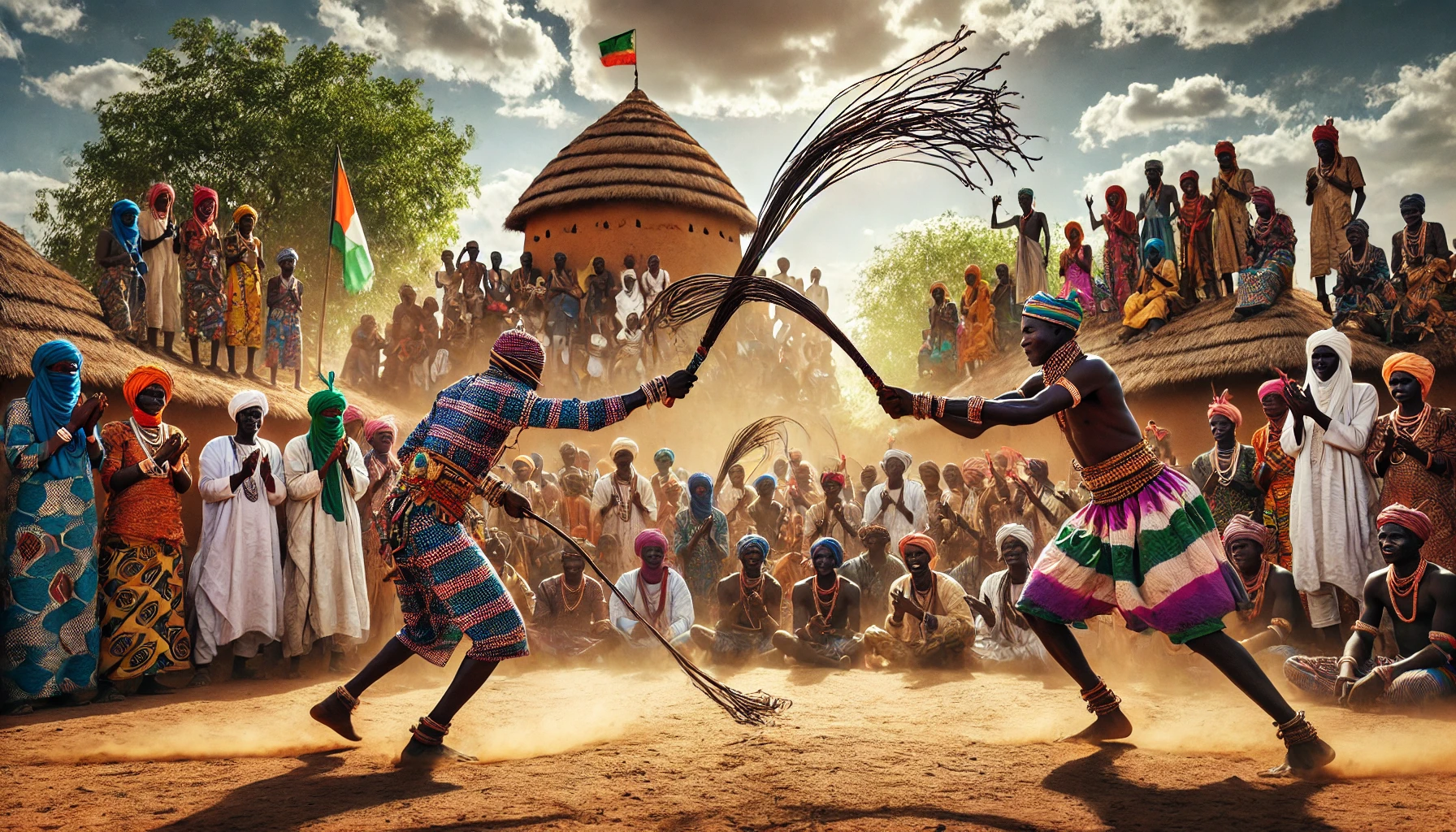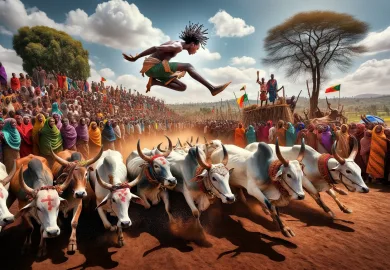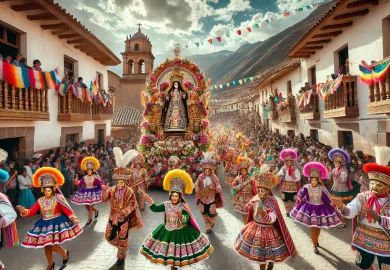
Disclaimer: This content was generated using AI. While I strive for accuracy, I encourage readers to verify important information. I use AI-generated content to increase efficiencies and to provide certain insights, but it may not reflect human expertise or opinions.
The Fulani people, spread across West Africa, are known for their rich cultural traditions, one of which is the fascinating and intense whip match. This tradition, particularly prominent in Niger, is a vibrant expression of courage, endurance, and cultural identity. The whip match, a rite of passage and a display of bravery, draws participants and spectators alike, offering a glimpse into the deep-rooted customs of the Fulani.
The Origins and Cultural Significance of the Fulani Whip Match
The Fulani whip match, known locally as “Shadi,” is more than just a physical contest; it is a cultural practice steeped in history and symbolism. Originating from the Fulani nomadic heritage, this event is traditionally held during festivals and significant community gatherings. It serves as a rite of passage for young men, marking their transition from adolescence to adulthood.
In the context of the Fulani culture, bravery and resilience are highly valued traits. The whip match embodies these virtues, as participants endure the pain inflicted by the opponent’s whip without showing signs of weakness. This endurance is not just physical but also psychological, as the young men must prove their readiness to take on adult responsibilities within their community.
The event is often accompanied by other cultural festivities, including music, dance, and traditional storytelling, creating a rich tapestry of Fulani heritage. The whip match, therefore, is not just a competition but a celebration of Fulani identity, bringing the community together to honor their shared traditions.
Origins of the Fulani Whip Match in West Africa
The origins of the Fulani Whip Match trace back to the nomadic lifestyle of the Fulani people, who have historically roamed across the vast Sahel region of West Africa. As a nomadic group, the Fulani developed various customs and traditions to maintain their cultural identity despite their frequent migrations. The whip match is believed to have emerged as a rite of passage for young men, symbolizing their transition into adulthood.
This practice allowed young Fulani men to demonstrate their bravery and endurance, traits highly valued in a society where physical resilience was crucial for survival. The tradition has its roots in a pastoral way of life, where the ability to withstand pain and protect the community played a central role. It also served as a means for resolving disputes and maintaining order within the group.
Over the years, the whip match became more than just a physical challenge. It evolved into a symbol of cultural pride and a method of reinforcing social bonds within Fulani communities spread across countries like Nigeria, Mali, Senegal, and Guinea.
Ritual Significance and Cultural Symbolism
The ritualistic nature of the Fulani Whip Match is central to its practice. Each match begins with a formal ceremony, where participants and spectators gather in a communal space, often accompanied by traditional music and dance. The ritual aspects of the event highlight the community’s respect for tradition and their desire to pass these customs to younger generations.
During the ceremony, the competitors—typically young men—are dressed in traditional attire, with colorful robes and intricate decorations. The event is not merely about physical prowess; it also emphasizes the competitors’ mental strength and self-control. The ability to accept a strike without flinching is a measure of true character among the Fulani.
These events often coincide with significant cultural festivals or seasonal celebrations, adding a festive atmosphere to the serious nature of the contest. The whip match symbolizes more than a test of strength; it is an act of honoring the ancestral heritage that defines the Fulani identity.
The Rules and Rituals of the Whip Match
The whip match is governed by a strict set of rules and rituals, which add to the solemnity and significance of the event. Participants are usually young men who have been preparing for this moment, both mentally and physically. The match takes place in an open area, often in the heart of the village, surrounded by an eager audience.
Before the match begins, there is a ritualistic preparation where the whips, made from animal hides, are carefully inspected. These whips are not just tools for the match but are also symbolic, often decorated with intricate designs that reflect the wearer’s clan or personal achievements. The participants also undergo a ceremonial preparation, where elders of the community offer blessings and advice, emphasizing the importance of courage and dignity.
During the match, each participant takes turns striking their opponent with the whip. The objective is to withstand the strikes without flinching or showing pain, which is seen as a sign of strength. The match continues until one of the participants can no longer endure the blows or if the elders decide to end the contest. The victor is celebrated, but both participants earn respect for their bravery.
The conclusion of the match is marked by a communal gathering where the young men are praised for their participation. This gathering often includes feasting and dancing, further reinforcing the sense of community and shared cultural heritage.
The Role of the Community and Elders in the Whip Match
The whip match is a communal event that involves the entire Fulani community. While the young men are the primary participants, the role of the elders and the broader community is crucial in maintaining the tradition’s integrity and ensuring that it is conducted with respect and honor.
Elders play a significant role in the preparation and execution of the match. They are responsible for selecting the participants, offering guidance, and ensuring that the rules are followed. Their presence adds a layer of solemnity to the event, as they are seen as the custodians of the community’s cultural values.
The community, on the other hand, serves as the audience, providing encouragement and support to the participants. The match is not just a test of individual strength but a collective expression of Fulani identity. The cheers and songs from the crowd are integral to the event, creating an atmosphere of solidarity and shared pride.
Moreover, the whip match is often used as an opportunity to impart important cultural lessons to the younger generation. Through storytelling and oral traditions, elders explain the significance of the event, the values it represents, and the importance of maintaining these traditions. This educational aspect ensures that the whip match remains a living tradition, passed down from generation to generation.
The Modern-Day Relevance of the Whip Match in Niger
In today’s rapidly changing world, the Fulani whip match continues to hold relevance, both as a cultural practice and as a means of preserving Fulani identity. Despite the pressures of modernization and the influence of external cultures, the Fulani people have maintained this tradition, adapting it to the contemporary context while preserving its core values.
For many young Fulani men, participating in the whip match is still a matter of pride and a way to connect with their heritage. The match serves as a reminder of the strength and resilience that are central to Fulani culture. It also provides a platform for young people to engage with their community and take on roles of responsibility.
The whip match has also gained attention from outsiders, including tourists and researchers, who are fascinated by the unique cultural practice. This external interest has brought new challenges and opportunities for the Fulani. On one hand, it has led to greater recognition and appreciation of Fulani culture on a global scale. On the other hand, it has raised questions about the commercialization of the tradition and the need to ensure that it remains authentic and meaningful for the Fulani people themselves.
In response, some Fulani communities have taken steps to control how the whip match is presented and to whom, ensuring that it is not reduced to a mere spectacle for outsiders but remains a vital part of their cultural heritage. This balance between tradition and modernity is crucial in ensuring that the whip match continues to thrive in the years to come.
The Fulani whip match in Niger is a powerful symbol of cultural continuity and resilience. It is a tradition that has withstood the test of time, adapting to changing circumstances while remaining deeply rooted in the values and identity of the Fulani people. As long as there are young men willing to take up the whip and elders to guide them, the whip match will continue to be a vibrant and essential part of Fulani life.








